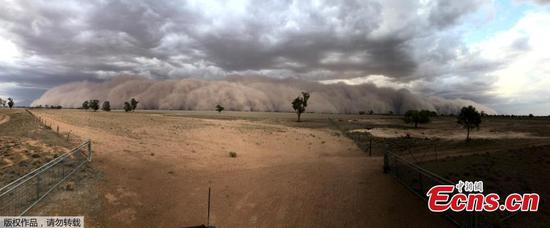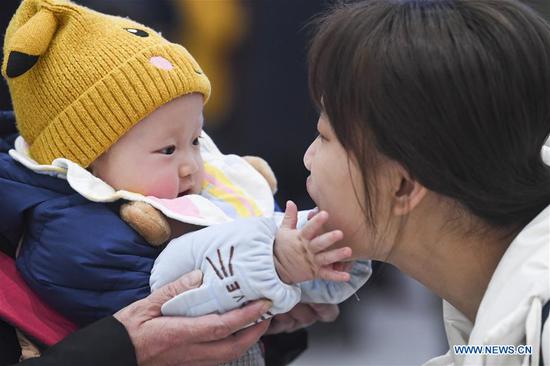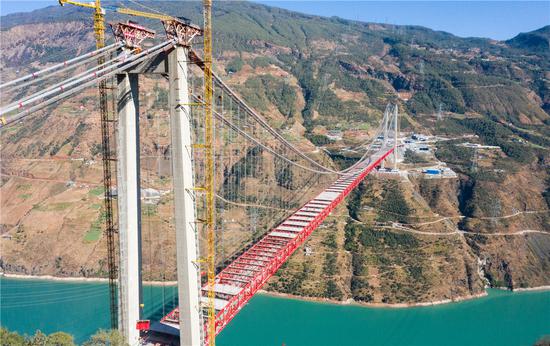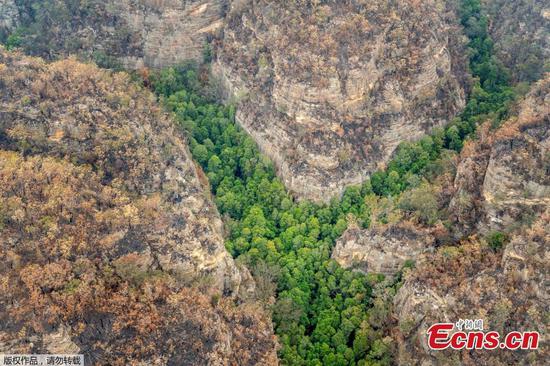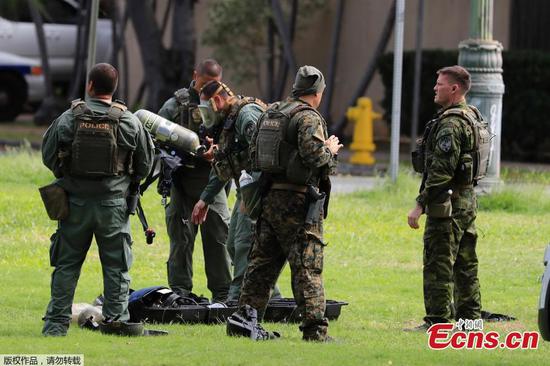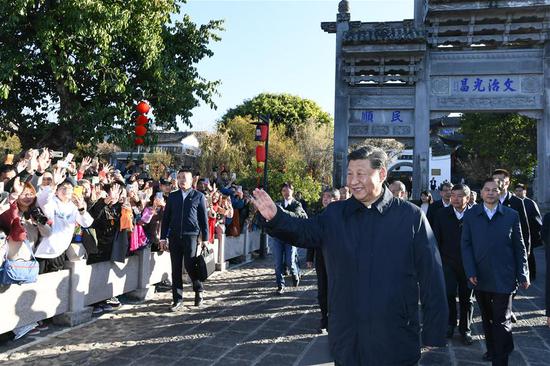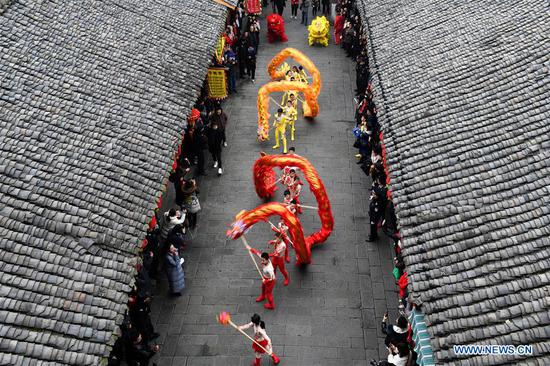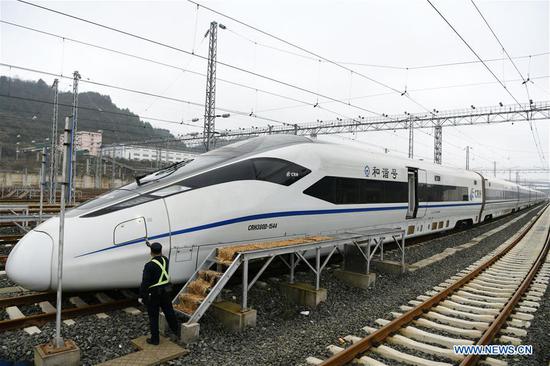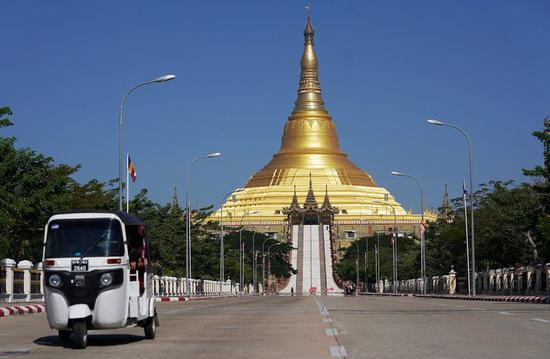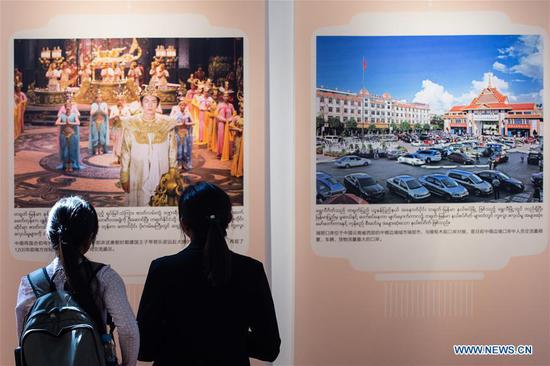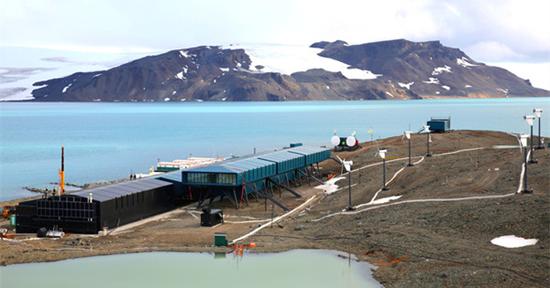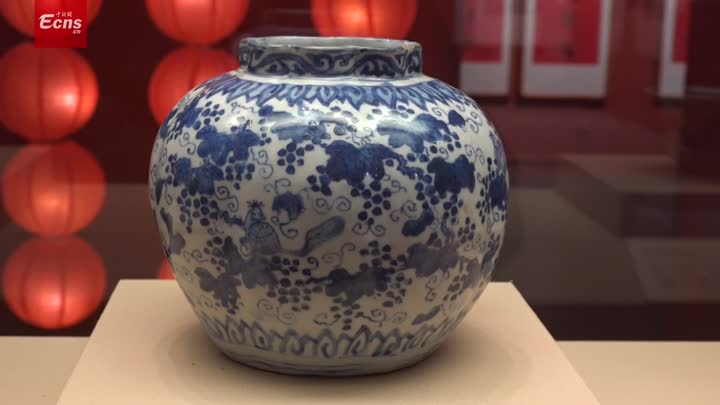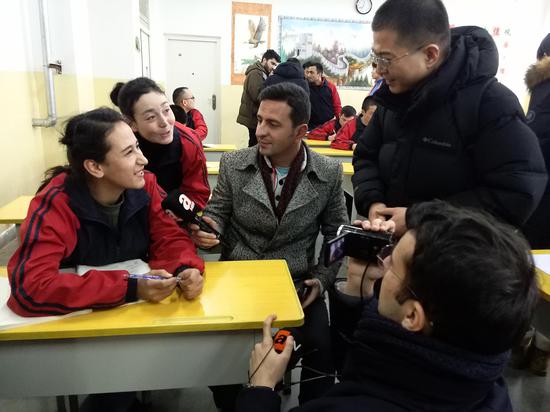
Foreign journalists interview students at Kashgar vocational education and training center in Kashgar, northwest China's Xinjiang Uygur Autonomous Region, January 13, 2019. (Photo/Xinhua)
Bias is self-evident in this article. Qin showed no qualms about painting the education provided by the government as evil. She deliberately described China's antiterrorism campaign in the region as "a ruthless and far-reaching effort that also includes the mass internment camps and sweeping surveillance measures" right after she said "education as key component" of the campaign. And the press conference made it clear that her claim of an "assimilation campaign" is a slander.
To support these claims, the correspondent tapped into a rather familiar source. Adrian Zenz, the "far-right fundamentalist Christian" described by the independent news outlet Grayzone, was quoted in her article. His belief that "the long-term strategy is to conquer, to captivate, to win over the young generation from the beginning" is presumably a validation of Qin's argument. However, Zenz has already lost all his credibility on the Xinjiang issue after he admitted to the baseless estimation but insistence that millions of Uygurs have been "interned."
And then there's the insinuation about how teaching Chinese at schools becomes a form of indoctrination. The question here is: What primary language should a school in China teach if not Chinese? And should a school teach its students to not love their motherland? As stated in the press conference, all countries in the world teach students to love their country. It is by law that all Chinese citizens have the right to learn and use Chinese, and that it is the government's responsibility to provide them with the necessary condition to do so. And is it even reasonable to question Chinese learning Chinese? Americans seem to have no qualms about their children learning English.
This is not a rebuke specifically targeting Qin's article, but against a broader set of arguments that coalesced in Qin's writing. The press conference has revealed more than enough information to dispute the false claims on the education situation in Xinjiang. But, what needs to be considered is whether the accusations lobbied against the government are reasonable in the first place.
The West has grabbed onto Xinjiang as some sort of built-in defect of the Chinese government and the Communist Party of China. The West's treatment towards Xinjiang is no less than a blanket condemnation of the government's presence in the region. They've criticized from law enforcement, to economic investments, and now education. The government's efforts, regardless of its effectiveness and benefits, are depicted as sinned on some level.
But, as repeated many times, China welcomes people to come to the region and see the prosperity and stability for themselves.
Script writer: Huang Jiyuan









